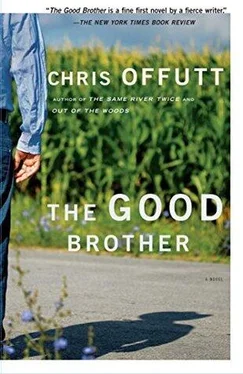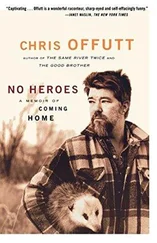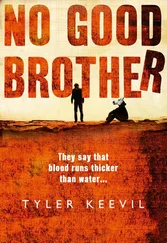“How long you had it?”
“Two years,” the man said.
“He must have been hard up,”
A small girl pushed the door open, carrying a man’s jacket over her arm. She placed the jacket on the counter and stared at the floor. She was very thin.
“Your daddy send you in?” the man said.
She nodded.
“He in the bar next door?”
She nodded again.
“Tell him I can’t take it today.”
She left with the jacket. The man’s expression returned to its hardened cast.
“That ain’t right,” Joe said. “Her coming in here that way.”
“It’s a free country.”
Joe went outside and threaded the belt through the loops of his pants, feeling closer to belonging in the West. The sun poured heat into the town. A tall woman wearing a fur coat and high heels emerged from an espresso shop. She sat sideways in a sports car, swiveled her legs into its plush interior, and drove away. Seconds later, a young man holding a straight razor backed out of a bar, forced by an older man who gripped the kid’s wrist. In a deft motion, the man disarmed the kid and sent him stumbling against a parked car. The man returned to the bar, which released a stream of laughter before the door shut again. The kid skulked away as if kicked. It occurred to Joe that a snakeskin belt didn’t make him belong here at all.
At a secondhand store he bought clothes, a sleeping bag, several blankets, and kitchen supplies. Many of the customers were Indians and he was careful not to stare. They appeared sad, rather than fierce, reminding him of people from the deepest hollows in Kentucky. They dressed the same, too — quilted flannel shirts, jeans, and boots.
He stopped for groceries and drove east on the interstate, past a sawmill pumping thick smoke into the pristine air. At the mouth of Rock Creek he headed south toward the Sapphire Mountains. Half the canyon was deep in shadow.
Outfitting the cabin required less than half an hour, and he washed the kitchen supplies twice to draw out the chore. He spent several minutes arranging his pillow and sleeping bag on the bed. In the kitchenette he changed the order of food along the shelves, stacking the cans in descending order of size. He distributed the clothes among the bureau drawers. On a nail by the door he hung a heavy coat with a phony sheepskin collar. His mother had always had a junk drawer in her kitchen, and he designated one as such, except he had nothing to put in it.
He granted the possum a place of honor on top of the refrigerator. Dust fell from, its pale fur. One eye was gone. He stroked its back. The bare walls made him sad, and he went outside and sat on a stump. The enormity of the decisions he’d made crashed against him like surf.
He rose abruptly, as if motion would blot the past, and looked around for somewhere to go. The woods at home had always served as solace and he decided to see Rock Creek. A faint path wove through the cottonwood and pine. Trees grew farther apart than in Kentucky, and groundcover was thin. The creek had no bank. The land ended and the water began. Orange moss shimmered on the bark of a cottonwood, the biggest tree along the stream, and at its base was a necklace of gnaw marks left by a beaver. Joe admired the beaver’s ambition, the boldness necessary to make such an attempt. He wondered if it was a bad sign to envy animals.
The water sparkled in the sun, running swift and black in the shade. The sun receded behind the mountain peak like an eye that abruptly closed and doused the canyon’s light. Joe remained by the water, soothed by its motion, as darkness moved through the valley like wind. The air became cold. Stars were bright and very close. A high-pitched yip echoed through the woods, trailing away in a mournful call. It came again, rising and falling in a lilt, repeating itself, and though he’d never heard the sound before, he knew it was a coyote. When it stopped, the woods seemed more silent than before. Full night had arrived. Joe headed for the cabin, quickened by a faint fear of losing his way. He undressed and went to bed.
He woke in a fetal ball, watching his breath turn white in the glimmer of dawn. His face was cold. Inside the sleeping bag, and beneath several blankets, his body was very warm. The thermometer attached to the woodstove read thirty-eight degrees, and the outside thermometer said forty-five. Joe gathered his clothes, stepped outside, and dressed in the sun. Larch flared in lines like candles along the higher slopes.
He fixed coffee and sat on the stump. A magpie’s black-and-white wings made a pattern that reminded him of rowing rather than flight. He washed his cup, then washed all the dishes he’d bought the previous day. He made his bed. He adjusted the possum. He felt the urge to tidy the cabin but there was nothing out of place. He sat on the stump and tried not to think of Rodale. His mind skipped to Abigail, then to his mother, Sara, Marlon, and Rundell Day. He didn’t want to think about them.
He went in the house and stood before the bathroom mirror, which framed his face in metal strips.
“Hi, I’m Joe Tiller,” he said.
He shrugged. It didn’t sound right.
“Name’s Joe,” he said. “Joe Tiller.”
“Nice to meet you. They call me Joe.”
“I’m Joe. Joe Tiller.”
“Just call me Joe.”
He looked over the cramped room, the narrow shower, the single nail for his towel, Sheetrock tape showed through the plaster where the corners met.
“I’m Joe Tiller,” he said, “and this is where I live.”
He walked around the cabin, checking sightlines. Anyone could easily see inside. He’d have to keep the curtains closed. Under the porch he found a shovel with, a split handle. The land glowed beneath a clean sky. He ate lunch. He wished he smoked for something to do.
A man arrived in the afternoon with two cords of firewood. His dump truck held dents on every surface, including the roof, as if it had been batted about by a giant bear. The side mirrors were fixed in place with wire. A small boy sat in the passenger seat. The man eased to the ground, talking before he got the door shut. An eye was gone and the skin sagged over the hole like a slack drape.
“You’re lucky,” he said. “I had wood left over. Not much call for a load this size. Demand’s went down in Missoula since that new law.”
“Which one was that?”
“It won’t let them burn wood half the winter.”
Joe laughed.
“I’m serious as a heart attack,” the man said. “New houses can’t put a woodstove in. They got an anonymous phone line to report your neighbor for heating his house with wood. About like a tip line for poaching.”
“What for?”
“Damn air’s no good. The same air stays in the valley till spring. Everybody just breathes each other’s old breath, about like being in the joint. I was at Deer Lodge for thirty-two months and ten days. You ever do any time?”
“No,” Joe said. “Why?”
“You got a look is all. I seen it before. Down the road from Deer Lodge is the old territorial prison from a hundred years ago. You know it’s a tourist place now. People pay good money to go in there.”
“I can’t see that.”
“Tell you something else I don’t get is being a guard. Every damn one was a registered son of a bitch. They spent all day in the same place as me, only difference was they went home to eat and sleep.”
“Maybe get a little fresh air.”
“Not if they lived in Missoula. Some days you’re supposed to stay indoors.”
“How do you know when?”
“It’s in the paper.”
“Well,” Joe said.
“Indians wouldn’t camp there in the old days. The fire smoke didn’t go nowhere. Then the white man came along and built a town.”
The man was becoming agitated. Joe jerked his head to indicate the child in the truck.
Читать дальше












